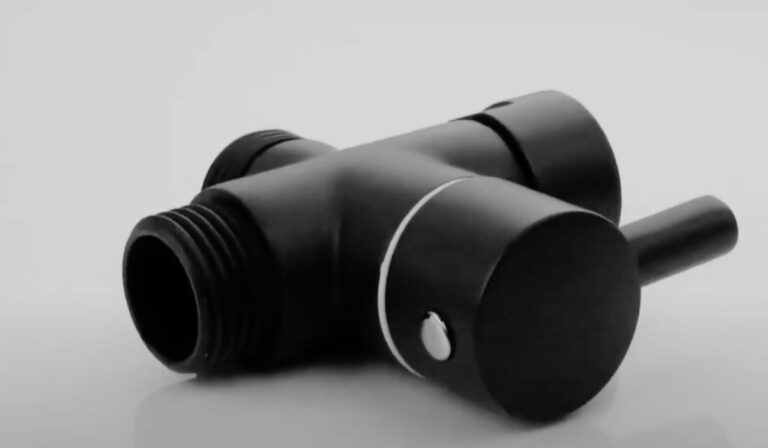Should You Shower When Sick
You should shower when sick because it helps clear congestion, soothes aches, and refreshes your mood. Using lukewarm water prevents chills and supports your body’s temperature balance. Just keep showers short and the bathroom warm to stay safe and comfortable. Avoid showering if you feel extremely weak, dizzy, or have a very high fever. Understanding these tips and knowing when to skip a shower can make a big difference in how you feel and recover.
How Showering Affects Your Body When Sick
Although you might feel too tired to move, taking a shower when you’re sick can actually help your body in several ways. The warm water can ease muscle aches and loosen congestion, making it easier for you to breathe.
It also helps regulate your body temperature, which might fluctuate when you have a fever. Moreover, a shower can cleanse your skin of sweat and germs, reducing irritation and preventing further infections.
Being in a warm, humid environment for a short time can soothe your nasal passages, and the steam may help clear your sinuses. You might notice that a shower refreshes you, boosting your mood and making you feel slightly more energized despite your illness.
Just keep it brief and avoid water that’s too hot.
Benefits of Taking a Shower During Illness
When you’re feeling under the weather, taking a shower can provide several important benefits that support your recovery. Warm water helps loosen mucus and clear nasal congestion, making it easier for you to breathe. The steam hydrates your respiratory passages, soothing irritated sinuses and reducing coughing.
A shower also helps wash away germs and sweat, leaving you feeling cleaner and more refreshed. Additionally, the warmth can ease muscle aches and joint stiffness that often come with illness. This relaxation can reduce stress, which supports your immune system.
Taking a shower can boost your mood and energy levels, helping you feel more alert and ready to tackle the day. Overall, showering gently supports your body’s healing process while offering comfort.
When to Avoid Showering While Sick
If you’re dealing with intense chills or a high fever, you should skip showering to avoid worsening your symptoms. When your body temperature is unstable, the sudden change in environment from warm to cool can cause discomfort or dizziness.
Also, if you feel extremely weak or dizzy, it’s safer to rest rather than risk falling in the shower. Avoid showering if you’re dehydrated since it can lower your blood pressure and make you feel faint.
If you’re experiencing severe respiratory issues, like persistent coughing or difficulty breathing, taking a shower might strain your lungs further.
Lastly, if your bathroom is cold or drafts are present, it’s best to avoid showering as it could trigger chills and prolong your illness.
Ideal Water Temperature for Showers When Unwell
Choosing the right water temperature can make a big difference in how you feel during a shower while you’re sick. Lukewarm water is your best bet—it’s warm enough to soothe aching muscles and open pores without overheating your body.
Hot water might feel comforting initially, but it can actually dry out your skin and leave you feeling more fatigued. On the other hand, cold water can be too harsh, potentially causing shivers and making you feel worse.
Stick to a moderate temperature that feels comfortable to you. This balance helps maintain your body’s natural temperature, supports relaxation, and prevents further stress on your system.
Adjust the water gradually to find what soothes you best without causing discomfort or chills.
How Showers Can Help Relieve Congestion
Although congestion can make breathing difficult, taking a warm shower can provide quick relief by loosening mucus and opening nasal passages. The steam from the shower adds moisture to your sinuses, which helps thin the mucus blocking your airways. As a result, you’ll find it easier to breathe and may even experience less coughing.
Additionally, the warmth relaxes your muscles, reducing overall discomfort caused by congestion. By standing under the warm water, you also encourage your body to sweat, which can help flush out toxins. Just a few minutes in the shower can make a noticeable difference, helping you feel more comfortable and clear-headed.
Tips for Showering Safely When You Have a Fever
When you have a fever, taking a shower can still be beneficial, but you need to take certain precautions to avoid worsening your symptoms.
First, keep the water temperature lukewarm—not too hot or cold—to prevent shocking your body. Limit your shower time to 5-10 minutes to avoid fatigue. Make sure the bathroom is warm and free of drafts to keep your body temperature stable.
Use gentle, mild soap to avoid irritating sensitive skin. If you feel dizzy or weak, sit on a shower stool or have someone nearby for safety.
After showering, dry off thoroughly and dress in comfortable, breathable clothes. Finally, hydrate well before and after your shower to support your body’s recovery.
The Role of Hygiene in Preventing Illness Spread
Since germs can spread quickly through contact, maintaining good hygiene plays a crucial role in preventing illness. When you’re sick, washing your hands regularly and thoroughly helps stop germs from spreading to others and surfaces you touch.
Showering not only refreshes you but also removes bacteria and viruses from your skin, reducing the chance of passing them on. Keeping your environment clean, like changing towels and washing clothes often, supports this effort.
Even if you feel weak, staying hygienic protects those around you. By making hygiene a priority, you lower the risk of spreading illness within your home or community.
Alternatives to Full Showers When Energy Is Low
Keeping up with hygiene is important even if you don’t have the energy for a full shower. When you feel too weak, consider using a damp washcloth or no-rinse cleansing wipes to freshen up your face, neck, and underarms.
You can also use dry shampoo to manage oily hair without standing under the water. A sponge bath is another effective alternative; sit comfortably and gently clean your body with warm, soapy water on a washcloth, then pat dry.
These methods help reduce germs and keep you feeling refreshed without draining your limited energy. Remember, staying clean helps your body fight illness better, even if you skip the full shower.
Prioritize your comfort while maintaining basic hygiene until you feel stronger.
How to Make Shower Time More Comfortable During Sickness
Although showering can feel exhausting while you’re sick, you can take simple steps to make the experience more comfortable and manageable.
First, keep the water temperature warm, not hot, to avoid dizziness or overheating. Use a handheld showerhead if possible, so you can control the flow without standing too long.
Place a non-slip mat and a shower chair or stool inside to sit when needed. Keep your towel and clothes nearby to avoid rushing after your shower.
Open the bathroom door slightly or use a fan to prevent stuffiness. Limit shower time to 5-10 minutes to conserve energy.
Finally, breathe deeply to help clear congestion and relax your muscles. These adjustments can help you stay clean while feeling better.
Frequently Asked Questions
Can Showering Affect the Duration of a Cold or Flu?
Showering won’t directly shorten your cold or flu, but it can ease symptoms by clearing nasal passages and relaxing your body. Staying warm and comfortable helps your immune system work better, so go ahead and shower.
Is It Safe to Shower With a Contagious Illness?
Yes, it’s safe to shower when you’re contagious. Just be careful to avoid spreading germs by sanitizing surfaces afterward and keeping your distance from others. Warm water can help you feel more comfortable and relieve symptoms.
Do Showering Habits Impact Immune System Strength?
Yes, your showering habits can impact your immune system. Regular showers keep your skin clean, reducing germs, while warm water relaxes muscles and improves circulation. Just don’t make showers too hot or long—they can dry your skin.
Can Showering Help Reduce Body Aches From Illness?
Yes, showering can help reduce body aches when you’re sick by relaxing your muscles and improving circulation. Warm water soothes soreness and eases tension, making you feel more comfortable and less achy throughout the day.
Should Children Shower Differently Than Adults When Sick?
You don’t need to shower differently for kids; just use lukewarm water and gentle soap. Make sure they’re comfortable, avoid hot water that can worsen dehydration, and keep showers short to prevent fatigue.
Conclusion
When you’re sick, showering can actually help you feel better by easing congestion and boosting your mood. Just be sure to use warm—not hot—water and listen to your body, especially if you have a fever or low energy. If a full shower feels like too much, try a sponge bath instead. Staying clean not only helps you feel refreshed but also prevents spreading germs. So, take care and shower smart when you’re under the weather.


